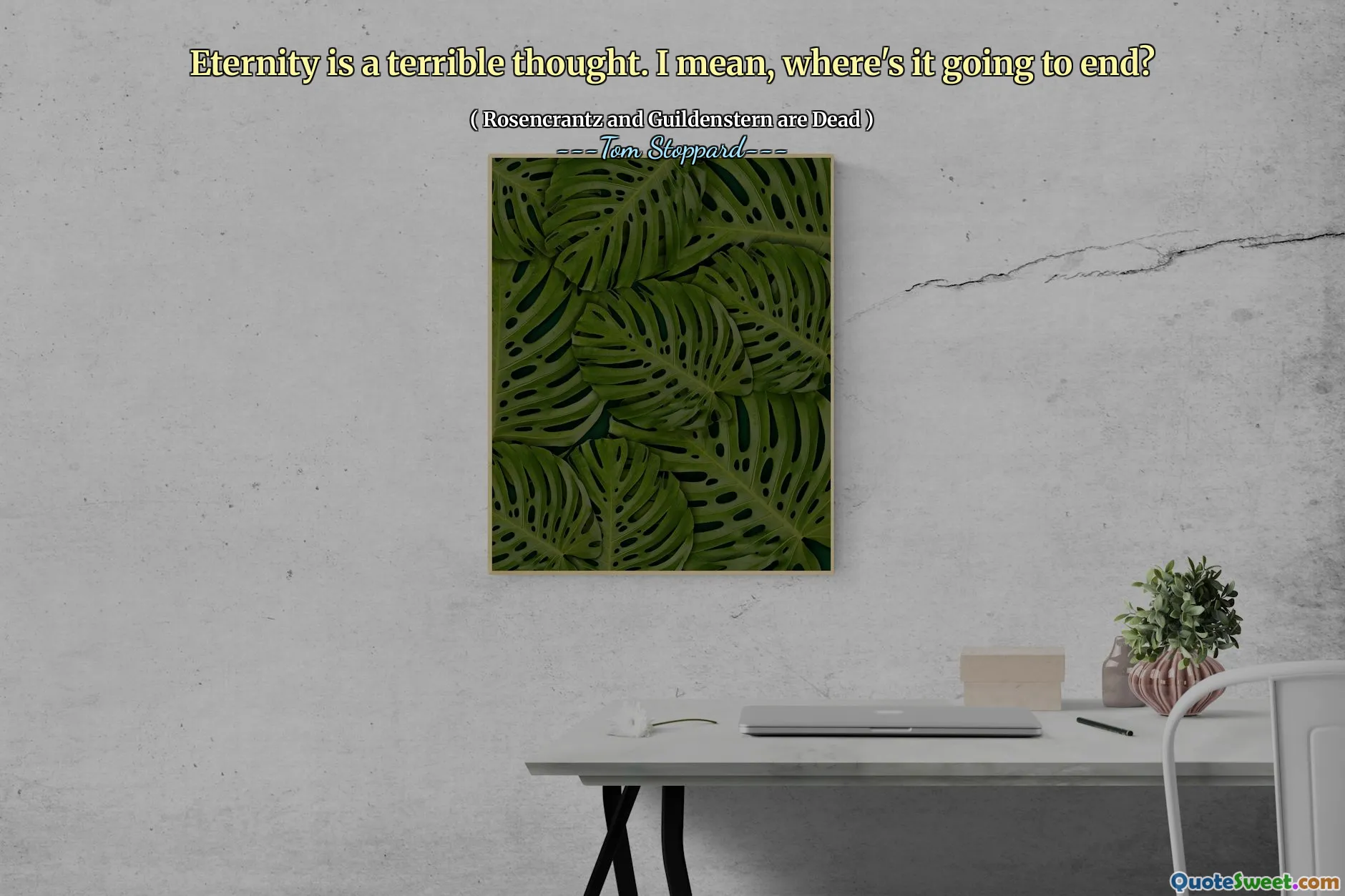
Eternity is a terrible thought. I mean, where's it going to end?
The quote raises a profound philosophical dilemma about the nature of eternity and the human mind's struggle to comprehend the infinite. It encapsulates a core aspect of existential pondering: the boundless concept of eternity can be overwhelming and even frightening because it challenges our finite understanding of time and existence. When contemplating eternity, one confronts the idea of endless duration—an unending stretch that, to many, appears impossible to grasp fully or reconcile with our finite lives. This thought might provoke feelings of insignificance or anxiety, as the notion of an unceasing continuation forces us to question what it means for something to have no end. It also highlights a fundamental paradox: while humans often seek meaning and purpose in their transient lives, the idea of eternity suggests a lack of conclusion, a perpetual continuum that defies closure. The reflection reveals the limits of human cognition; our minds are built to process beginnings and endings, not infinite continuations. Such thoughts can be paralyzing unless one finds comfort in the idea that eternity might be beyond human comprehension, or perhaps, that it is simply a conceptual construct rather than a literal reality. Interestingly, this fear of infinity also touches on the concept of time itself—whether time is endless or merely a human perception. Ultimately, this quote invites us to think about how we confront the infinite and what it reveals about our fears, hopes, and understanding of the universe. Engaging with these ideas fosters a deeper appreciation for the mystery of existence and the limits of human knowledge.






